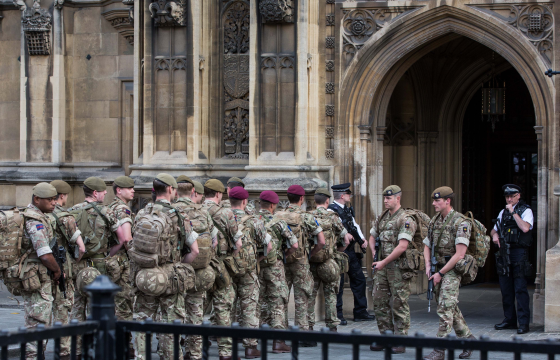"We will never understand it, and it would be futile to try," says The Independent's social and political commentator Matthew Norman of the terrible bombing at the end of the recent Ariana Grande concert in Manchester. He continues: "Whether it is evidence of evil or madness feels an utterly pointless distinction to draw with an act of such utter pointlessness. Who could care today where the line between wickedness and insanity, if anywhere, should be drawn?"
Norman's is a very understandable reaction. He is saying, in effect, that there is no point scratching one's head because there is no answer to why someone would perpetrate such carnage and mayhem among young innocents attending a pop concert. However, social anthropologists might disagree that analysis is futile.
I attended Mary Douglas’s wide-ranging lecture, Seeing Everything in Black and White, in London shortly before her death in 2007. She gave a familiar run through of her grid (presence or absence of social rules) and group analysis (presence or absence of social pressures) while highlighting some of the dynamics of a sectarian perspective.
"Sectarianism involves strong feelings, deep resentment, a searing sense of injustice, above all, anger," said Douglas. She continued: "All of these are intensified when religious loyalty is engaged." And she had a well-thought out name for the boundary behind which terrorists operate – "the wall of virtue".
In such a situation "the saints" often find it all too easy to view other people as "sinners". As Douglas explains: "There can be no negotiation and the word ‘compromise’ means betrayal."
To be fair to Matthew Norman, Douglas admitted that she had more questions than answers in relation to what drives terrorism – though crucially she noted that individual members of a sectarian group "tend to compete for the holiest reputation".
What's often striking about the details of the lives of Western-born suicide bombers is how normal or mainstream their behaviour is before they retreat full-time behind the Islamist wall of virtue.
It appears that Salman Abedi , 22, the second youngest of four children, born to political refugees from the Gaddafi regime in Libya, was at one time a business and management student at Salford University but then dropped out.
He was also a big fan of Manchester United but that interest was also set aside. Then, a few months ago, according to Abedi’s neighbours in Elsmore Road (described by one newspaper as "a quiet, residential street lined with red-brick semi-detached houses"), in the Fallowfield area of Manchester, he started chanting Islamic prayers "in Arabic" on the street, a normally secular space.
Perhaps that change in behaviour should have been a wake-up call. The wall of virtue is often invisible but in this case it was plain for all to see.
Abedi was signifying a holier-than-thou-look-at-me attitude not only to his neighbours but also mainstream Muslims and fellow Islamists.
Dr Sean Carey is honorary senior research fellow in the School of Social Sciences, University of Manchester




 Loading ...
Loading ...
What do you think?
You can post as a subscriber user ...
User comments (0)